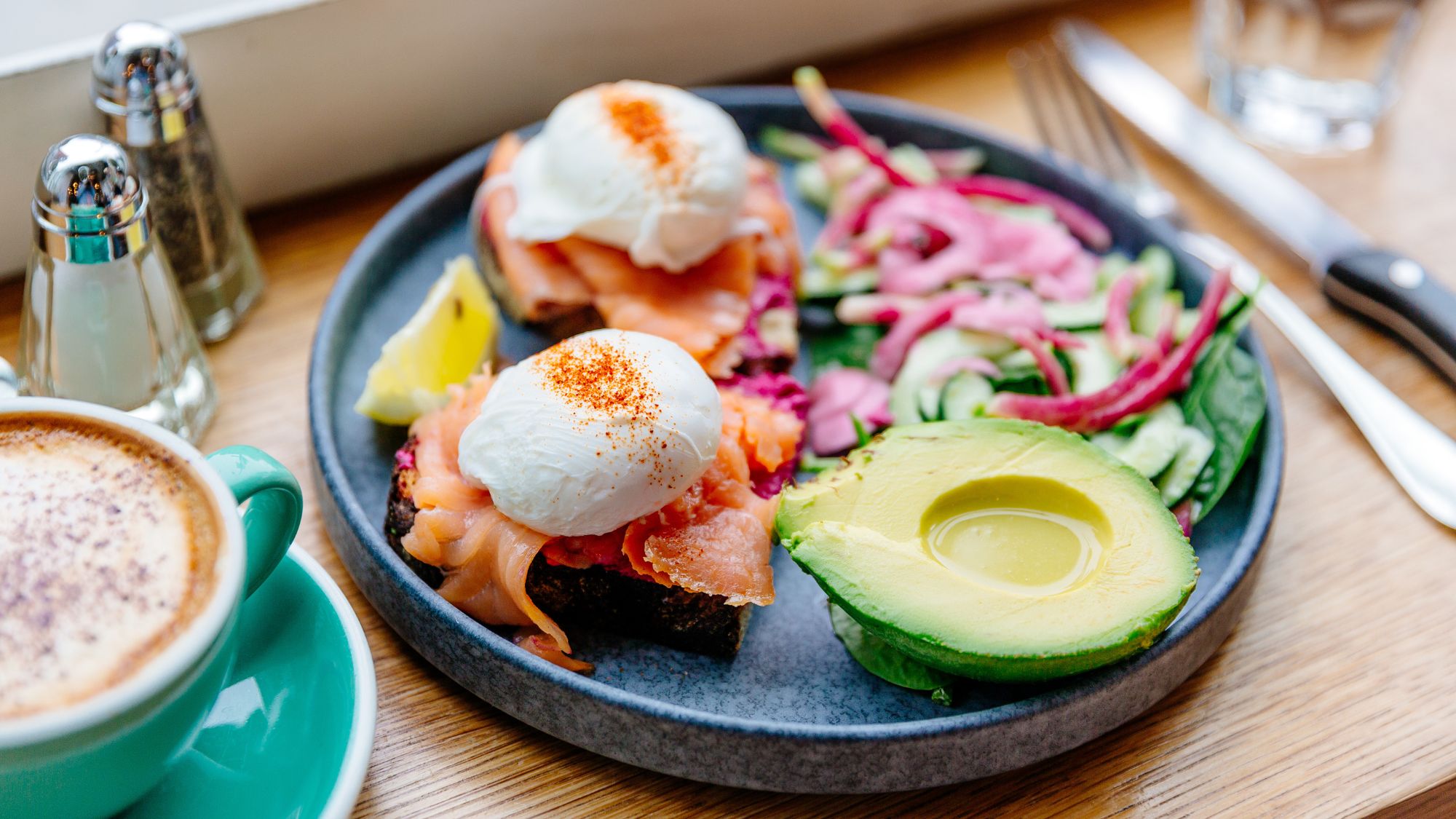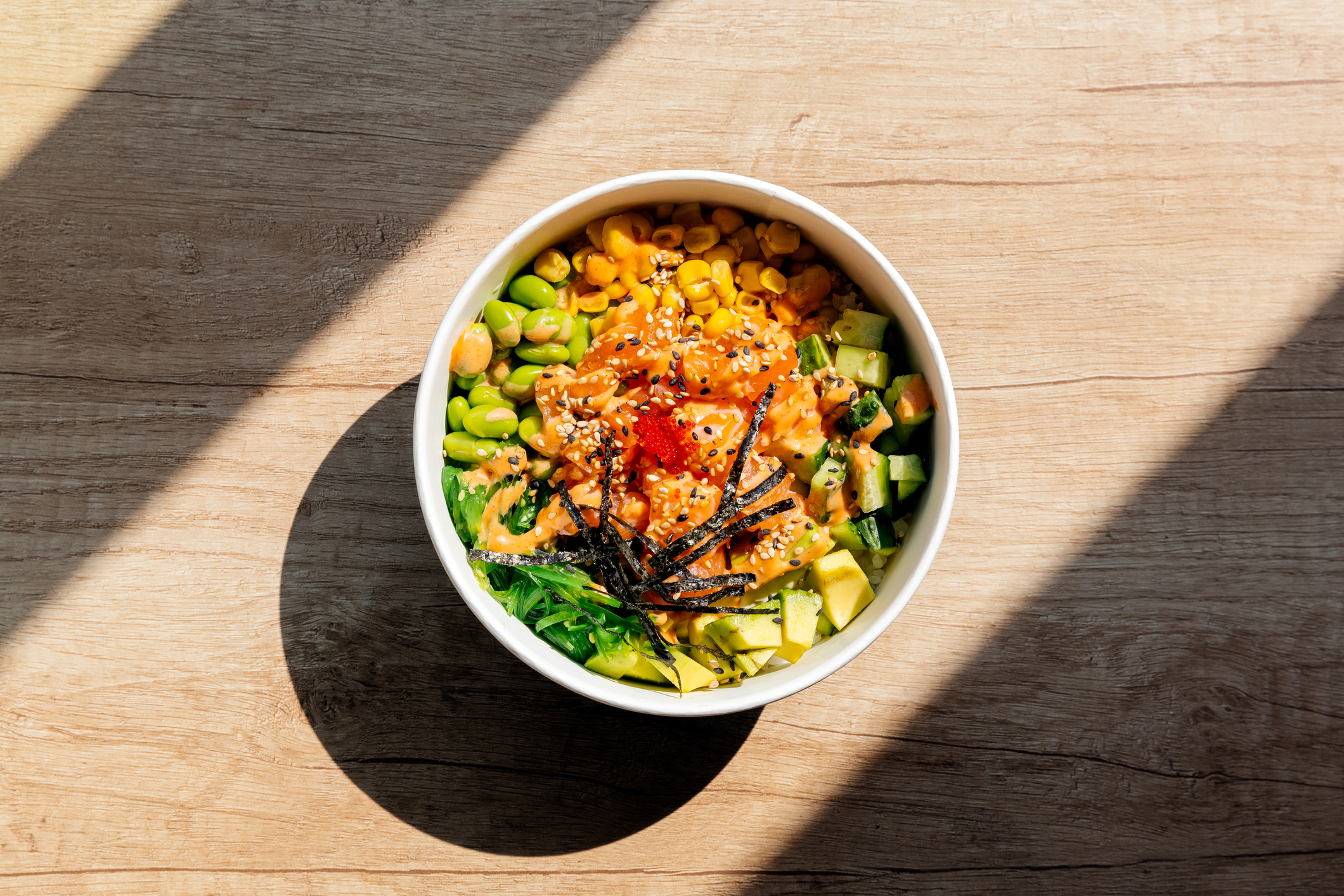
Celebrity news, beauty, fashion advice, and fascinating features, delivered straight to your inbox!
You are now subscribed
Your newsletter sign-up was successful
Do you know what type of eater you are? Fun fact: there are four recognised types of eater, according to the experts at Noom, a psychology-based behavioural change platform.
Here at Marie Claire UK, we're anti-fad diets and pro-working out a way of eating that works for you and your body. Food is an integral part of life, and the type of food that you eat day-to-day and that suits you will likely look wholly different to your best friend.
That said, the NHS Eatwell Guide advises aiming for a minimum of five portions of a variety of fruit and vegetables a day, balanced meals of protein, fat and carbs, and six to eight glasses of water a day.
So, how can learning what type of eater you are empower you? Well, understanding your eating habits and educating yourself about what food works for your body and lifestyle has a whole host of benefits, from boosted energy levels, to improved digestion, to peace of mind.
To get an expert take on the matter, we spoke to the Chief of Psychology at Noom, Andreas Michaelides, Ph.D.
Note here: as Andreas points out, there is nothing wrong with eating for reasons other than hunger now and then - think celebratory birthday cake, ice cream on a hot summers day, or mince pies come Christmas time, food can be a source of nostalgia, bonding and joy and is about so much more than simply fuelling your body. "That said, if you begin to feel like you don’t understand why you’re eating the way you are or how best to eat in a way that supports your health goals, then it can be helpful to recognise this behaviour and establish eating habits that can better support your body and goals."
Don't miss our guides to a vegan diet, healthy breakfast ideas and what to eat after a workout, while you're here.
Celebrity news, beauty, fashion advice, and fascinating features, delivered straight to your inbox!
Types of eater: 4 to know about to inform your food choices
1. Fuel eating
Noom has conceptualised four different types of eating: fuel eating, fun eating, fog eating, and storm eating.
Fuel eating is what it says on the tin, really - as Michaelides explains, it's eating for the purpose of fuelling your body.
"Fuel eating means choosing foods that are nourishing to the body and that provide the right kind of fuel for energy and health, in the form of complex carbohydrates, healthy fats, lean protein, fibre, vitamins, and minerals," he goes on.
Fuel eating can also be identified as eating to live, not living to eat. "Certain studies have found that this type of eating helps your body work at optimal levels," the psychologist explains. "We know that eating a well-balanced, nutrient-rich diet can be beneficial to both body and mind."
That said, some may find fuel eating lacks the joy and the spontaneity so important to a healthy relationship with food - not to mention, that labelling foods as "bad" and "good" is, by definition, a disordered way of viewing food. Michaelides continues: "It's important to allow yourself to eat for enjoyment or pleasure. Fuel eating is good for you, but it’s not the only food game in town."
2. Fun eating
Next comes fun eating, aka eating for pleasure. If fuel eating is eating to live, fun eating is living to eat, explains the psychologist. It's important to note here that you can engage in both eating styles - in fact, it's actively encouraged that you do.
Foods commonly consumed when fun eating span the ones we listed above - celebratory foods, comfort foods, and foods that perhaps lack on nutritional value but boost your mood and comfort levels. "These foods are for pleasure as opposed to nutritional value, but are equally important," explains the psychologist.
"Just as it can be easy to think of fuel eating as “good,” it can be easy to think of fun eating as “bad”," he continues, "However, there is no harm in enjoying both of these types of foods."
It's really important to enjoy consuming these types of eating situations, such as eating out, cooking with family and friends, or dining at events, without feelings of guilt or negative emotions.
How? Well, Michaelides recommends prioritising eating high-quality foods and practising mindfulness. "These are both great ways to achieve moderation without having to constantly worry about self-control and finding a balance between the two types of eating."

3. Fog eating
Next up? Fog eating. This is also known as mindless eating, when you pay no attention to the foods you are consuming or the reason why you are eating them.
"Many of us often find ourselves at the bottom of crisp or popcorn bag in front of the TV," he shares. "This can often become a ritual habit that occurs every time you switch the TV on"
Although it's of course impossible to pay close attention to every mouthful, incorporating mindfulness can significantly improve your eating experience, he shares. "This might result in your making more considered choices, further noticing when you’re full and enjoying eating more."
Portion control and paying attention to your fullness signals are also important to be aware of when trying to minimise fog eating.
4. Storm eating
Last comes storm eating - eating that can occur as a response to strong emotions like stress, tiredness, or fatigue. "For example, if you come home from work in a state of stress, you might find yourself eating chocolate or crisps without giving them much thought."
Storm eating isn’t about actual hunger - rather, it's about rebelling against food restriction or self-medicating with food, shares the expert. "When it happens, you feel about as in control of it as you would feel if caught in a hurricane," he explains.
Do note here: it’s totally normal for this to happen every now and then, but it might affect your mental health if it becomes a habit.
If storm eating is feeling problematic for you, ask yourself the following three questions, recommends the expert.
1. Are eating enough filling, nutrient-dense food during the day? You may just be hungry when you get home.
2. Are you on an overly restrictive diet? If so, storm eating is a common side effect.
3. Are you eating for emotional reasons? If so, how can you remedy these emotions in other ways?
So, how can you adapt your lifestyle based on the type of eater you are?
1. Incorporate mindful eating
Michaelides is a big fan of incorporating mindful eating into your day - "this can help you become more aware of your decisions about food and why you make them," he explains.
You've likely heard of mindfulness in your daily life, but how can it help your eating habits? Well, "by incorporating mindfulness, you can teach yourself to pause and take a moment to understand the choices you are about to make and why you are making them," he continues.
2. Try CBT techniques
Another method he advises is adopting some Cognitive Behavioural Therapy (CBT) techniques. "These can help you move toward incorporating more helpful thought patterns, which can, in turn, positively impact your health journey," he explains.

3. Stay curious
Next up, Michaelides highlights that it's important to stay curious about your cravings. "Question the emotions you are feeling at that moment — why do I want to eat? What do I want to eat? Am I really hungry or am I thirsty, or am I feeling other emotions such as stress, boredom, or anxiety?," he recommends.
Try this: if you find you are truly hungry, he advises trying to engage with food and build a more positive relationship with it by enjoying the aroma, texture and taste. Sit at a table to eat your meal without distractions and fully enjoy each bite. Breathe deeply to anchor yourself in the present, engage all your senses, and think as you eat: How does your food taste and feel when you bite into it? What tastes stand out and what aromas can you smell?
Between each bite, put your fork down and think. Listen to what your body is telling you. It takes 20 minutes for your brain to register that you are full. So slowing down and savouring your meal in the present will help you be more aware of your feelings of hunger and fullness. If you don't have 20 minutes to do this habit, invest just one minute at first to enjoy the texture of your food. Just one minute a day can go a long way and help you build this habit into your eating routine.
4. Learn what type of eater you are and educate yourself accordingly
Finally, by recognising the type of eater you are, you can be better equipped to recognise your behaviours which correlate to your eating habits, shares the expert.
If you have been affected by any of the themes mentioned in this article, BEAT is the UK's leading eating disorder charity. Their helplines are open 365 days a year from 9am – midnight during the week, and 4pm–midnight on weekends and bank holidays, or help is available at beateatingdisorders.org.uk.

Ally is Marie Claire UK's Senior Health and Sustainability Editor, a well-regarded wellness expert, ten-time marathoner, and Boston Qualifying runner.
Utilising her impressive skillset and exceptional quality of writing, she pens investigative, review and first-person pieces that consistently demonstrate flair and originality.
As well as writing, Ally manages a team of freelancers, oversees all commissioning and strategy for her pillars, and spearheads the brand's annual Women in Sport covers, interviewing and shooting the likes of Mary Earps, Millie Bright, and Ilona Maher. Shortlisted for three BSMEs and winning one in 2022, Ally lives and breathes her verticals: her eye for a story and connections within the wellness sphere are unrivalled. Follow Ally on Instagram for more.
